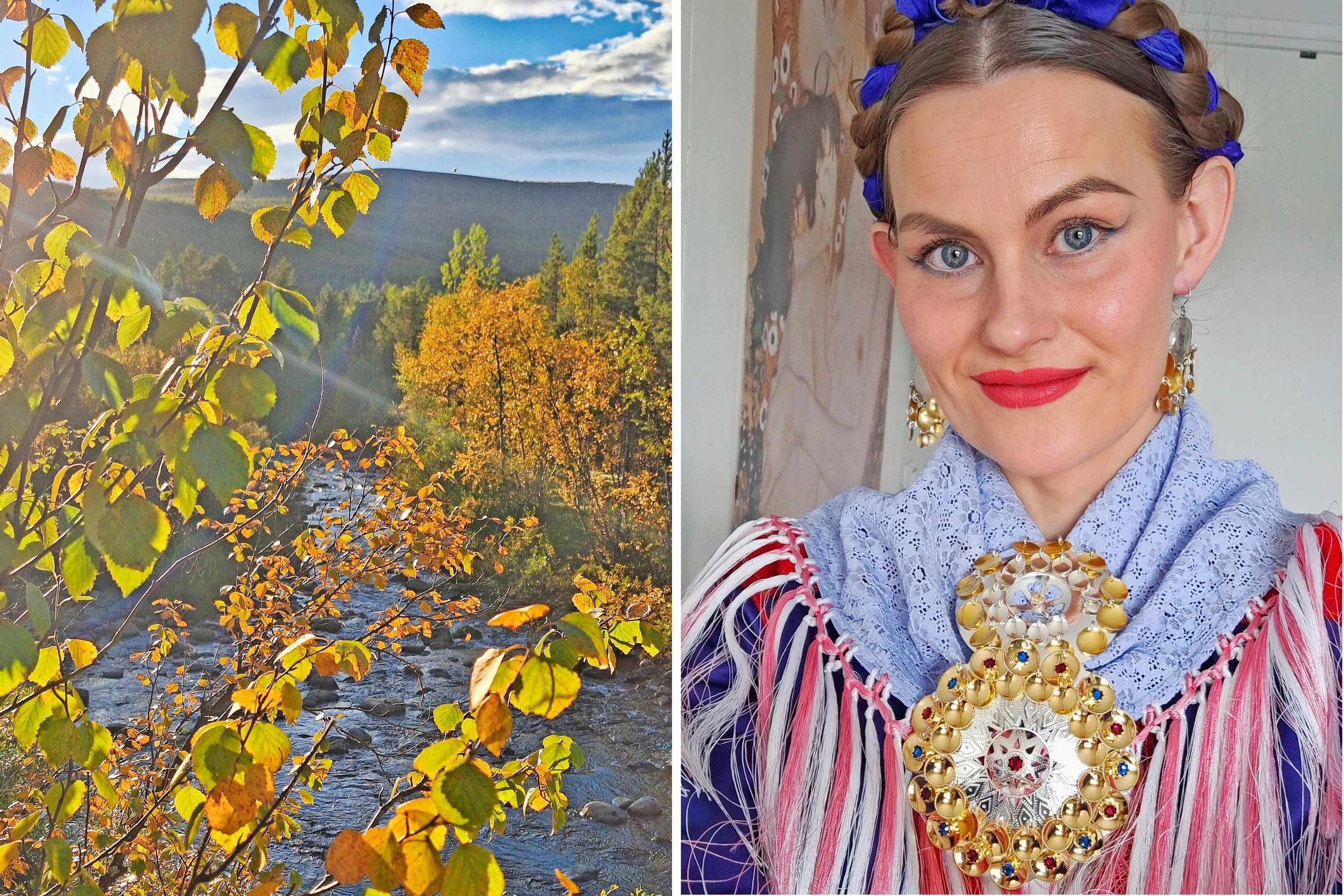
Helga West returned to her childhood home in the far north of Finland—“I now live as my father's roommate”
Author Helga West and her children moved to her childhood home in Utsjoki, the northernmost municipality in Finland. “For me, a house becomes a home when there's both young and old living in it,” Helga says.
“I now live in my childhood home as my father’s roommate. I moved back in July 2024. My house is a two-story wooden building at the bottom of a valley surrounded by fells in Utsjoki, a small fishing village on the banks of the Teno River. You can see Norway on the other side of the river.
The interior of the house is a quirky blend of new and old. I spent my childhood and teenage years here with my parents and siblings.
I moved out at 16 to attend high school in Rovaniemi. Later, I lived in Helsinki and spent several years in Estonia.
While I was away, I felt a deep sadness about how quiet my home village and our house had become. I wished for them to come alive again. That’s why I decided to move back with my children.
For my father, the move was a relief, because the house finally had someone living in it again. He’s often away, and the house stood empty for most of the past 20 years.
When I arrived in my childhood home’s yard with all my boxes, it felt as though an indescribable weight had lifted from my shoulders. It was replaced by a feeling of lightness.

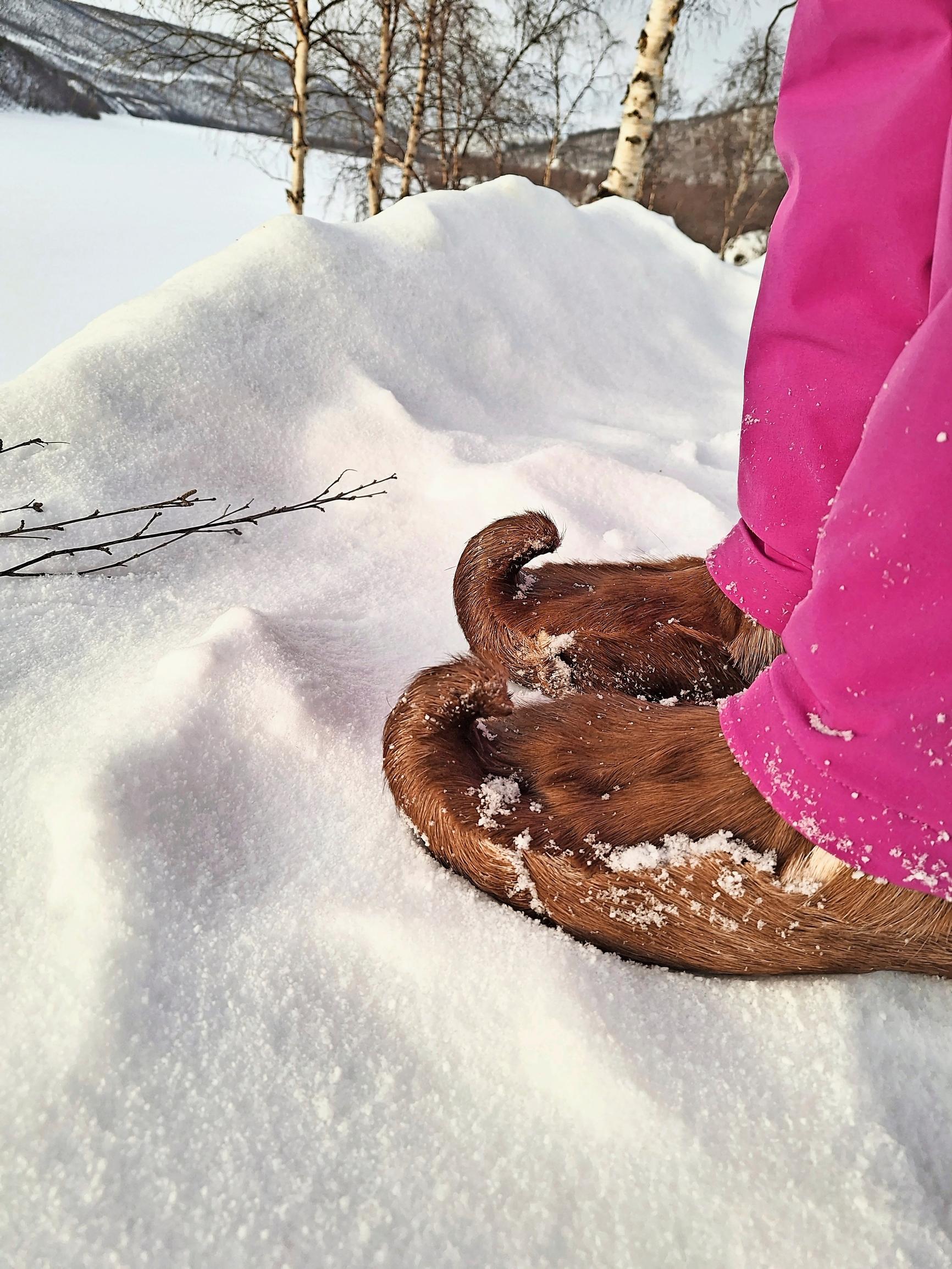
I am the child of a Sámi father and a Finnish mother, and I am just as much Sámi as I am Finnish. I recently wrote about what it was like to grow up between two cultures in my book Puhu nukke (“Speak, doll”.)
My parents decided long ago that we children would be raised in Sámi culture, even though my mother is originally from Ostrobothnia.
When I lived in the south, away from Sápmi, I felt something called “ethnostress.” It was the sadness of being absent: it felt contradictory to live somewhere other than my ancestral lands while working on Sámi matters.
For years before moving back, I had dreams where I stood on the shore by our home. My children were with me, as well as my sister and her children, and my áhčči—my father.
My decision to move formed little by little. I have two sons with two different fathers, so relocating required discussions with both of them.
I felt that living anywhere else would cause my children to miss out on the Sámi community and the meaningful environment: the waterways, the fells and the hills, and the Siberian tits. I went without all of those for a long time too.
Still, the decision made me nervous. Would I become isolated and depressed in the middle of nowhere? Would my kids and I meet nice people? There are no residents our age or friends for my children here. A café or store isn’t even an option in my wildest dreams. The only social spot is the graveyard, where the village’s lone bench is located. I knew all this, but I moved anyway.
“I’ve lived with roommates before. I figured I’d manage with my áhčči just fine!”
I’ve lived with roommates in various communities. I figured I’d manage with my áhčči just fine!
My father still works, as a physician in Norway. On weekends and holidays, he returns to our home with his Sámi wife. He has a great sense of humor, and I love listening to his stories.
During the week, we talk on the phone and plan what we’ll cook together on the weekend. Usually one of us handles the meat, and the other tackles the mashed potatoes.
My father and I also have a habit of bickering. I’m pretty good at debating, probably because I’ve always argued with him. Bickering is part of our closeness. It’s not like we’re going to wake up and talk about Dostoevsky.
One of our go-to bickering topics is the kitchen garbage bag dispenser. In the kitchen, to the left of the fridge, there’s a bare section of wall where my father wants to keep a plastic bag dispenser. I think it’s always in the line of sight, so I often move it out of view. And then he puts it back on the wall.
I’ve tried to explain that aesthetics have inherent value that brings us humans joy. He usually responds, “To hell with your aesthetics!”
We also clash over the junk in our yard. An old bed has been left there to be hauled away, but my father isn’t in a hurry. I’ve pointed out that we have a lovely house, but a visitor’s first sight is that damn bed.
I know living together requires flexibility and compromise. I have in fact been thinking about learning to drive with a trailer, that way I can get rid of the bed myself.
Besides, my father is getting older. That's also why I can’t just expect him to do everything for me.

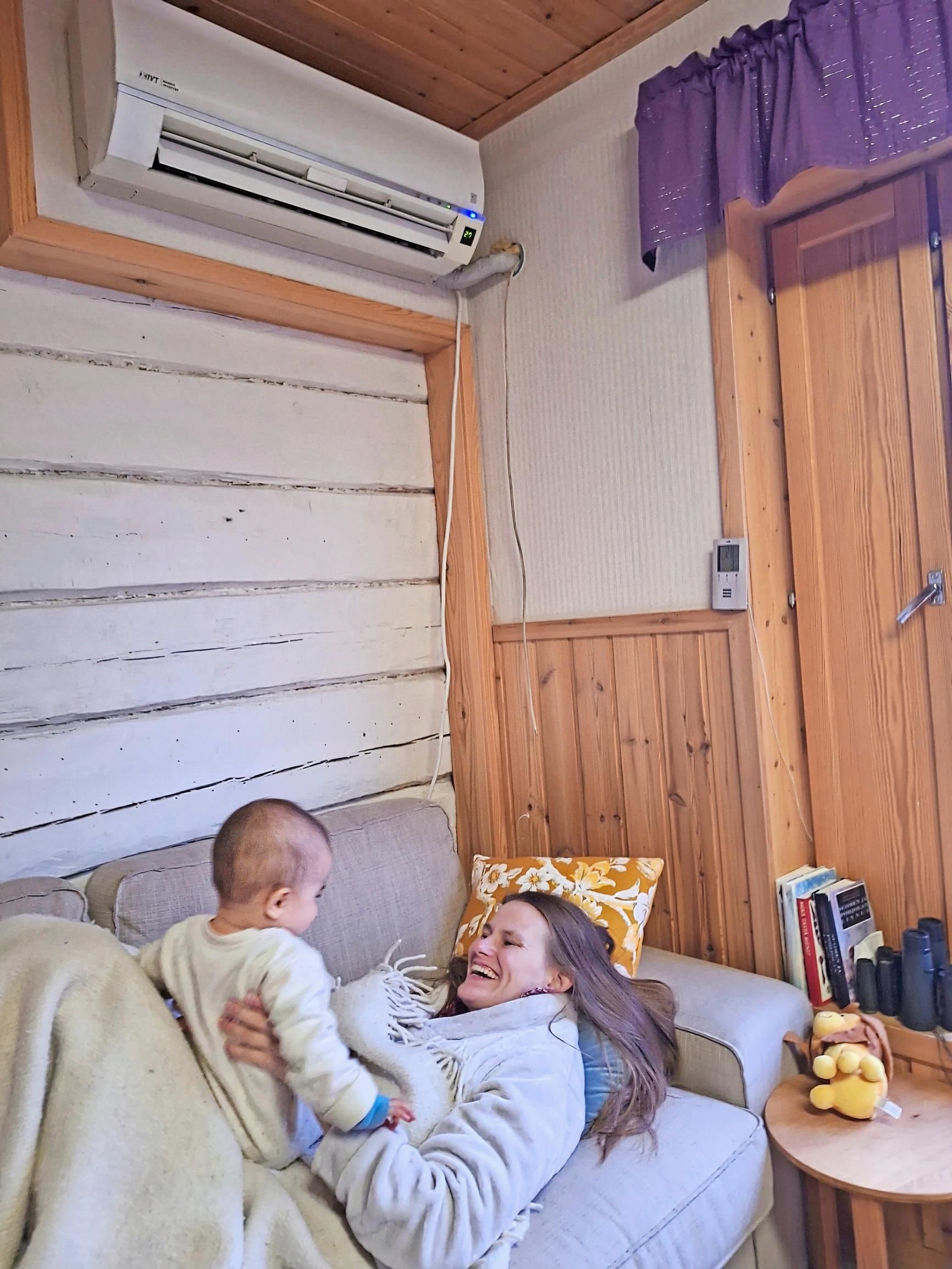
I’m not at all convinced the best way for someone to stay well is to live alone or at most with a nuclear family. That’s also why I’ve consciously challenged middle-class ideals with my choices.
I enjoy being under the same roof with multiple generations. For me, a house truly feels like home when there's both children and older people living in it.
Even though we have everyday disagreements, my father and I both love this home. Sometimes he’ll call me in the middle of the week just to ask what’s going on around the house.
There’s a single magpie that always lands on the same stump in the yard. Maybe that’s its territory.
Not much else happens there, and my father knows it. I miss the place too if I visit my sister in Helsinki. Thanks to nature, it feels like something is always going on in our valley, even with the lack of human drama.
It’s stressful seeing how the climate is warming and what comes with it. One day it’s above freezing, the next it’s below. This makes survival tough for Arctic species. It also affects driving, making it hard with the unpredictably changing road conditions.
Distances in the north are so huge, that even I bought a car when I moved here. I’ve learnt to drive in these rough conditions with the kids in the back seat.
The best thing about living up north is the sense of community. Our neighboring village, Karigasniemi, serves as a hub for the tiny local villages. On Fridays, everyone plays floorball together, kids and adults all together running across the court.
“My father and I butt heads about the garbage bag dispenser and the junk lying around the yard.”
I live downstairs in our house with my children, while my father and his wife stay upstairs.
During the week, I’m on my own with the kids. I never get bored, because I always come up with something new to do.
My oldest goes to a nearby village school and rides there by school transport. I’m on child care leave with my one-year-old. We’re practicing potty training and like to watch the birds in the yard.
If I need a quick break, I turn on the robot vacuum. My youngest child is fascinated by it. Our Roomba is practically a member of the family.

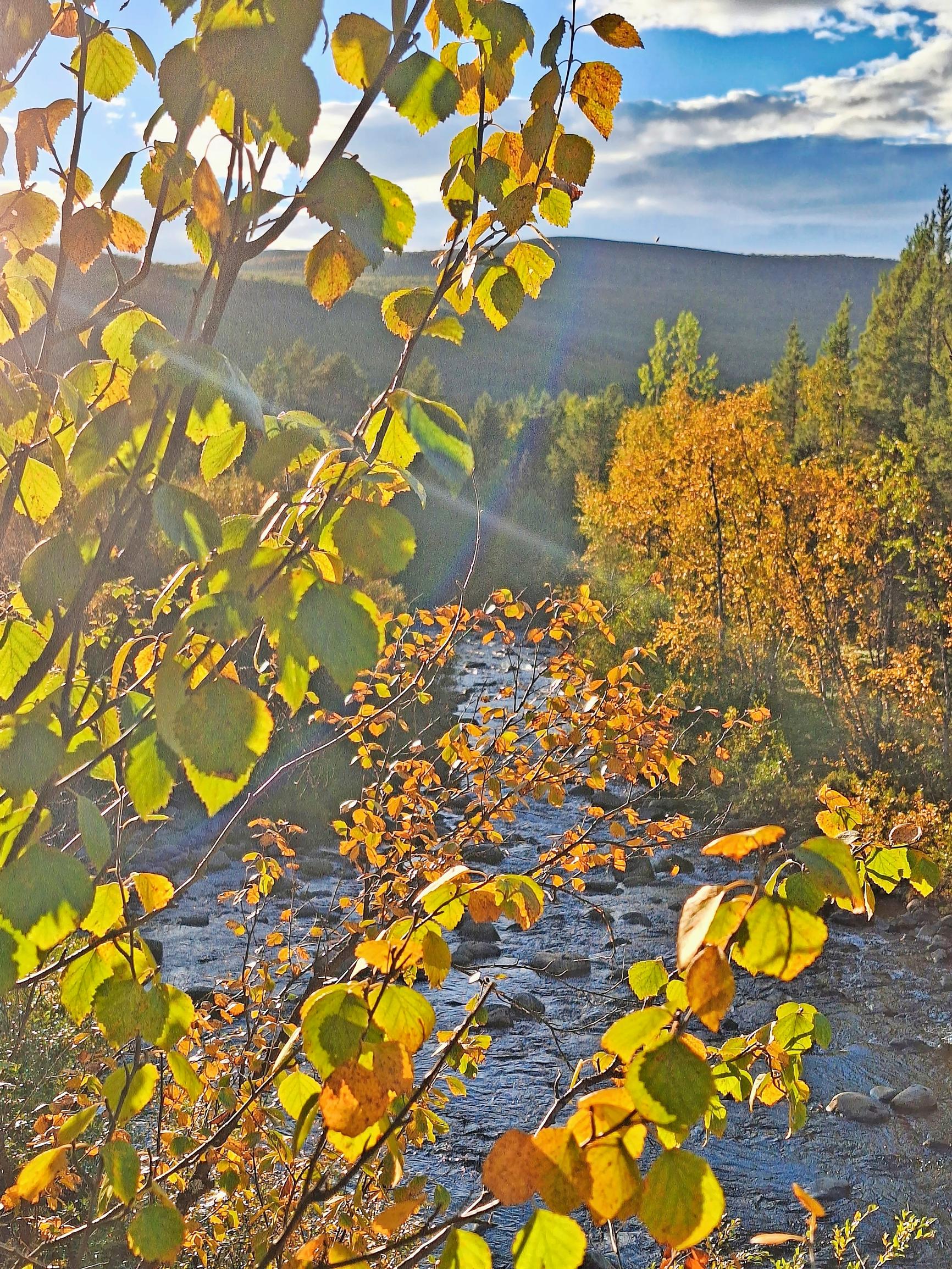
My parents divorced when I was a teenager, and my mother moved back to her home village in Kaustinen. Now she sometimes comes to visit this old house with her new partner. It feels homely, because she’s a real homemaker who helps me look after this place. She knows it inside and out, having lived here most of her life.
Some of the rooms are for my siblings to use. They come here regularly on vacation.
My mother and father had six children together, and after they divorced, each had one more child. So there are eight of us siblings in total.
“It felt like a museum at first. I took down my siblings’ and my childhood photos from the walls and the fridge, replacing them with pictures of our children.”
When I moved in, I barely did anything in the house. I just carried in my boxes with help from my father and younger brother. I was even too exhausted to unpack—the move and finishing my book had worn me out.
In my new home, I started to sleep off the fatigue. Eventually, my energetic mother from Ostrobothnia got tired of seeing my boxes and put my things where they belonged.
In time, I finally got motivated as well and made the house feel like home with small gestures. It felt like a museum at first. I took down my siblings’ and my childhood photos from the walls and the fridge, replacing them with pictures of our children.
My sister Suvi West says growing up suits me. Together with her and our mother, I’ve sorted through and thrown out old things: schoolbooks, toys, decades’ worth of cables, and a broken portable CD player.

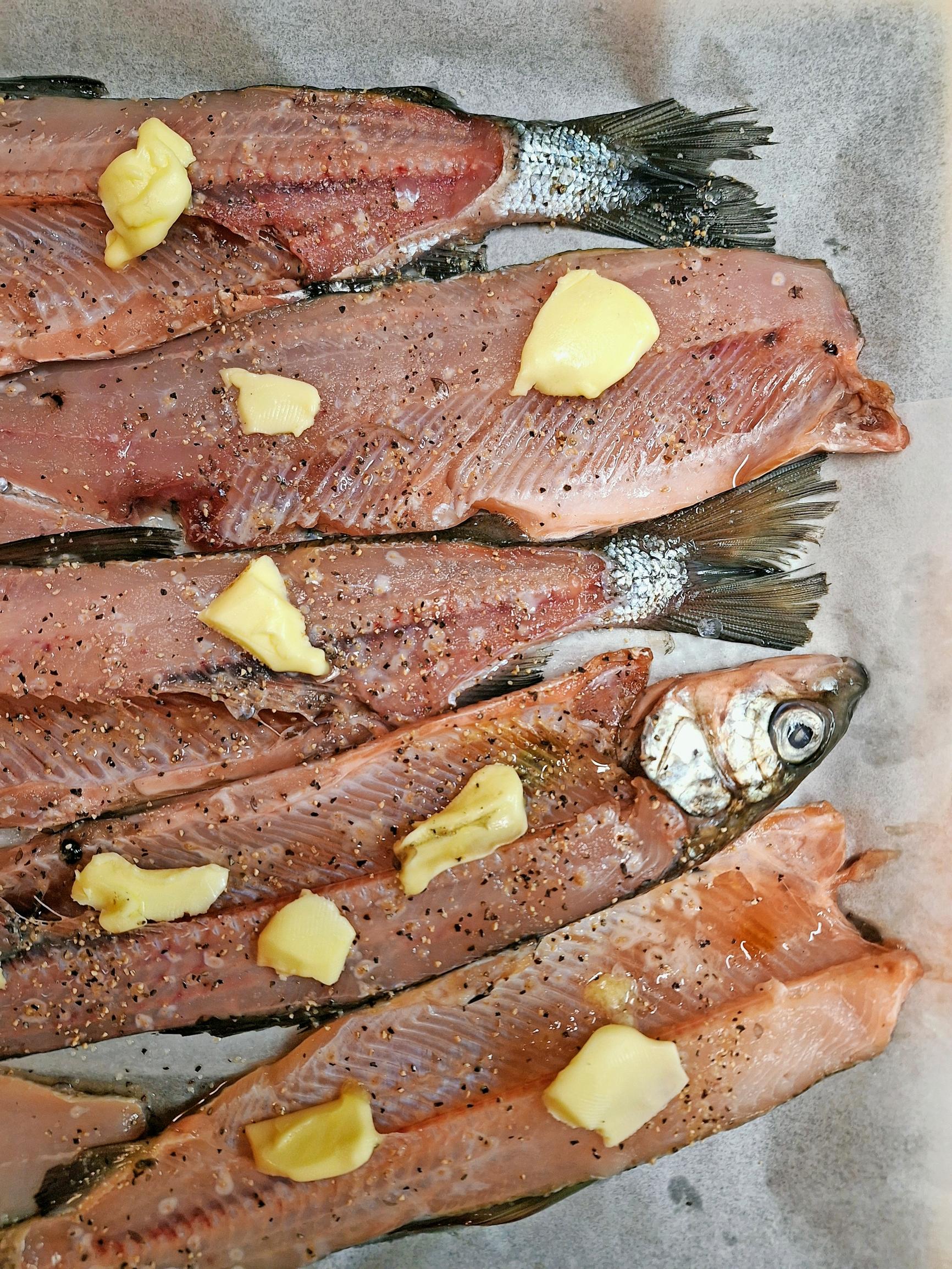
The house stays alive as long as people keep going through the clutter. I never used to take much responsibility for our shared belongings—being the youngest was my role. My wise and strong older sisters, Suvi and Kaarin have often handled things for me and rushed in to help.
There was all kinds of obscure items among the things we found, such as was a glittery souvenir sombrero from Mexico City airport. I hung it on my bedroom wall. Its absurdity puts me in a good mood. To me, that hat represents our family’s joy of life.
Now I dream that my friends and siblings will start visiting in droves. I’d love for us to really bring this place to life together.
I especially love seeing children around the place. Adults are pretty boring from a house’s perspective—we might maintain it, but children truly bring it to life.”
Helga’s 3 tips for communal living
- Respect the space. “We haven’t taken over the whole house. Some rooms hold my siblings’ belongings, and we don’t touch those. It’s their home too, even though they mostly visit on vacation.”
- Be considerate of others. “Do concrete things for one another—like cooking a shared meal. Taking care of each other creates security and a sense of home.”
- Clean up after yourself. “Cleaning is one sure-fire way to show you value other people.”


